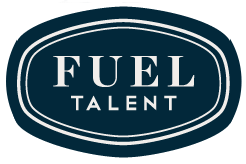Five Interview Trends to Watch Out For in 2023
When it comes to job interview trends, recruitment trends, and hiring trends, it's essential to be mindful of what is important from the perspective of both job seekers and from the perspective of recruiters. The top talent among many industries focuses on companies' diversity and inclusion initiatives and often applies for jobs with companies that have invested in their employer brand.
The recruitment process can be challenging because of the increased number of applicants stemming from layoffs at many companies, and applicants who have reprioritized since the pandemic. Both instances lead to an increased number of applicants per corporate job opening. Because candidates have reprioritized what they value in the workplace, many candidates are focused on obtaining positions at companies that value their employees and have great benefits. This means that those highly desired positions have more applicants. The larger applicant pool can be tough for recruiters to sift through without the support of applicant tracking systems. This has led to analytics and the increased use of applicant tracking systems becoming recruiting trends year after year.
Data-Driven Recruitment
Data-driven recruitment is a trend that has been around for a while, but it’s more important than ever. Research done by Jobscan suggests that nearly all Fortune 500 recruiters are using applicant tracking systems (ATS) to assist with their hiring needs. There is not one ATS that dominates the market, so it’s important to cater your resume to the job description you’re interested in applying to. It is recommended to focus on the quality of the application you submit instead of the number of jobs you apply to. Review job postings to make sure you're aligning your resume correctly. Integrate hard skills and soft skills to highlight your ability to do the job effectively.
Hiring in the Digital Age: Remote Interviewing
Remote work and remote interviews have become the norm, but candidates should still look professional when they conduct interviews. When determining what to wear for your interview, even if you're working from home, prioritize a polished look to make a great first impression.
Dorian Smith, Director of Fuel’s Marketing & Product Practice shares, “Hiring Managers still like to see candidates looking polished for interviews. It’s not surprising that with the rise in WFH culture, many of us have swapped our blazers for sweatshirts but that shouldn’t be the case for interviews. There’s still a level of professionalism that hiring managers want to see when a candidate is interviewing.”
Engaged Candidates: What Interviewers Want to Know
Hiring engaged candidates is fruitful for everyone involved. Employee engagement can be critical to a company's success because employee engagement is directly linked to job satisfaction and employee morale. Hiring employees who are engaged in the company mission and vision is an effective hiring strategy that many organizations implement to ensure they find the right people for each role. Hiring employees who care about the mission of their company and/or their job leads to lower turnover rates. Lower turnover rates and higher employee retention can reduce overhead costs for the company.
With this said, there is often so much going on in the hiring process that candidates forget to show their excitement during the interview process. Interviews can be stressful but consider highlighting why you’re excited about the role and the opportunity.
Shauna Conlon, Director, Administrative Support & HR Practice explains, “Often, candidates forget to express interest in both the role itself as well as in the company that they are interviewing for.”
With the rise of automation in hiring and the increased number of applicants for each role, it can be easy to get swept up in ensuring that you’re showcasing your achievements and qualifications when answering interview questions.- feels like it is in the wrong place- automation has to do with applications not interviewing- confusing.
Conlon goes on to note, “Sometimes candidates assume that since they’re interviewing for the role, the client knows that they must be interested in /excited about the opportunity and the company. However, clients still want to hear that candidates are interested in the specific position and in their specific company -not just that they’re looking for a new job. This also allows candidates to show off their research skills when they express their interest in the company. It is important to be specific about why the company stands out and why it aligns with your goals.”
Salary Transparency
As of January 1, 2023, three new states (California, Rhode Island, and Washington) joined several other states (looking at you Washington!), cities, and counties enacting salary transparency laws in job listings. These laws are intended to give workers more leverage to negotiate earnings and close wage gaps.
On average, roughly one in four U.S. workers now live in a place where employers are required to share pay ranges by law, according to calculations from analysts at Payscale.
Importance of Employer Brand
Recent studies show that over 70% of global hiring managers agree that employer brand has a significant impact on talent acquisition. So much so that having a good employer brand and good company culture can reduce organizational turnover by nearly a third and reduce cost-per-hire by 50%.
Companies offering a good candidate experience make prospective candidates excited about working at a company that promotes employee value. This trend is sure to be around for the long haul. Be sure to research the company and assess whether the values and culture align with your personal and professional goals.


